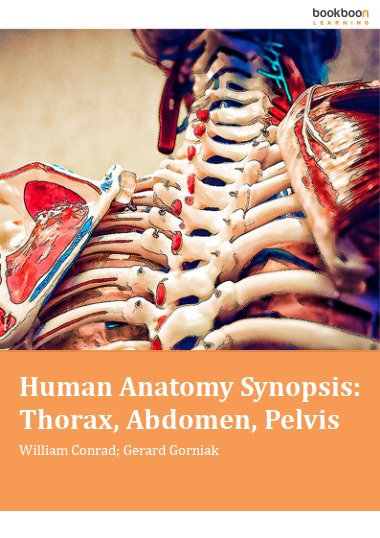This is one of four synopses describing Human Anatomy in an outline format. It includes numerous diagrams, cadaver dissections, tables and study questions. This synopsis describes the thoracic, abdominal and pelvic organs, the perineum, regional blood vessels and peripheral nerves plexuses; and regional muscles. Each synopsis is based on over 40 years of course materials used by thousands of students and multiple instructors. Other synopses include Human Anatomy Synopsis: Pelvic Girdle & Lower Limb; Human Anatomy Synopsis: Neck and Spine; and Human Anatomy Synopsis: Axilla & Upper Limb.

